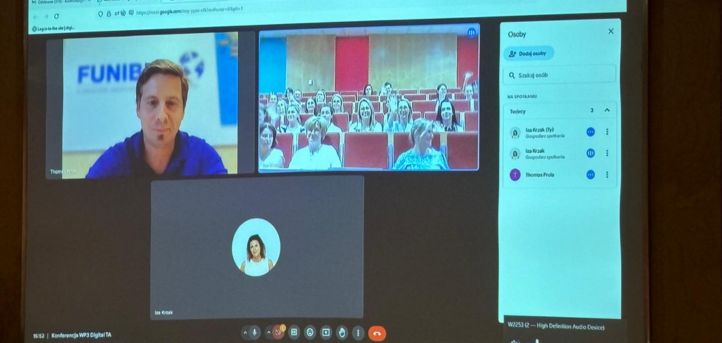The European University of the Atlantic (UNEATLANTICO) and other partners of the Erasmus + DigitalTA (2022-2025) project participated at the end of May in an educational event organized by Świętokrzyskie Teacher Training Center (ŚCDN) in Kielce (Poland), to share updates and summarize the final phases of the project.
The meeting served to discuss the integration of new ŚCDN teachers with DigitalTA’s objectives, share new developments of the project and show them in depth the resources available in the digital platform being developed, facilitating their integration in their teaching practices. This tool is conceived as a space where teachers can share their challenges, reflections, resources and best practices with each other.
Thomas Prola, UNETALANTICO professor and project coordinator, participated virtually to discuss the activities and strategies planned for the next phases of the project. Dr. Agnieszka Szplit, lecturer and researcher at Jan Kochanowski University (UJK), presented crucial information on how the international community can further support junior teachers.
During the conference, certificates were awarded to teachers for successfully completing various training workshops linked to the project. Some of the topics covered in the training included: legal aspects of psychological and pedagogical assistance, formative assessment, curricula and teaching plans, critical thinking, educational trends, stress management and improving well-being, among others.
To conclude the event, the various forms of ongoing support offered by the ŚCDN were presented, so that participants were clearly aware of the assistance available to them in this framework.
Those interested in the DigitalTA project can find out more about it through its website.

“Financed by the European Union. However, the views and opinions expressed are solely those of the author(s) and do not necessarily reflect those of the European Union or the European Educational and Cultural Executive Agency (EACEA). Neither the European Union nor the granting authority can be held responsible for them.”


